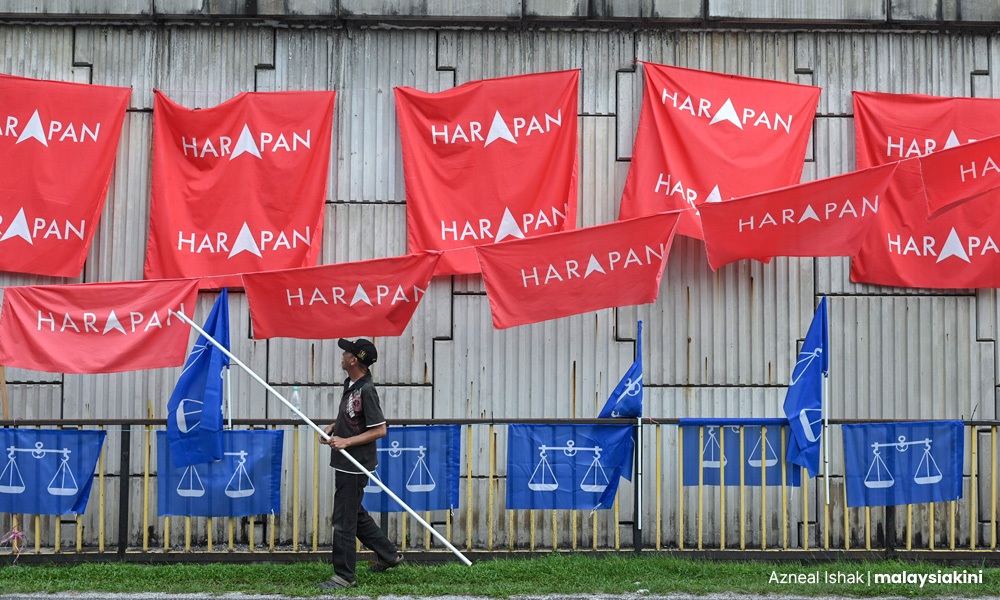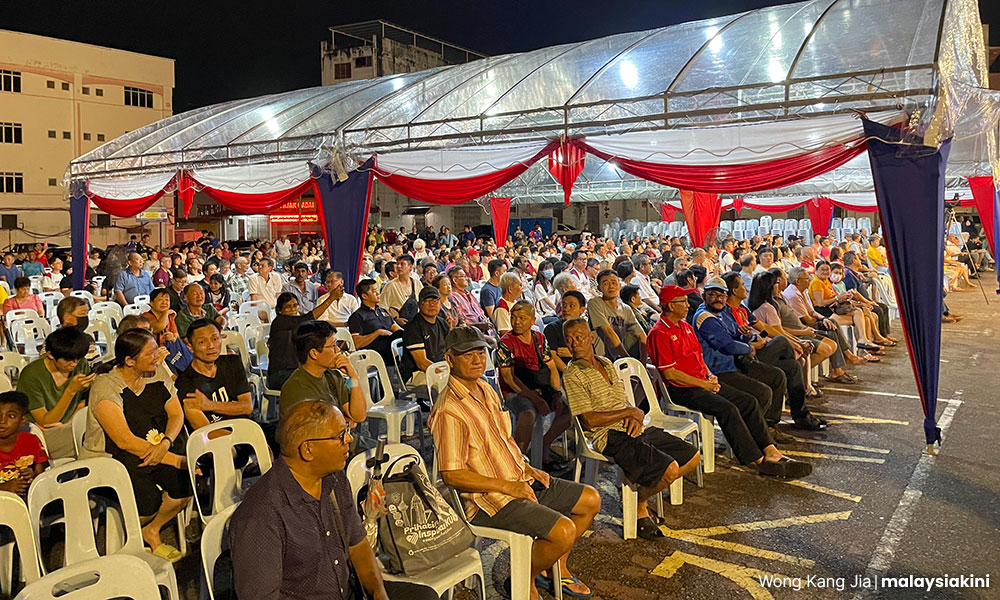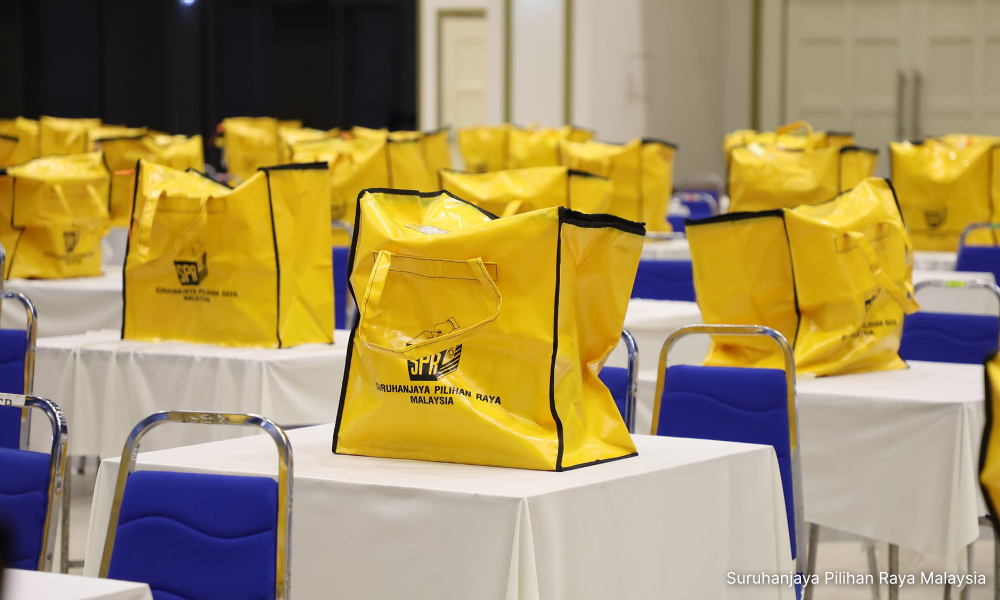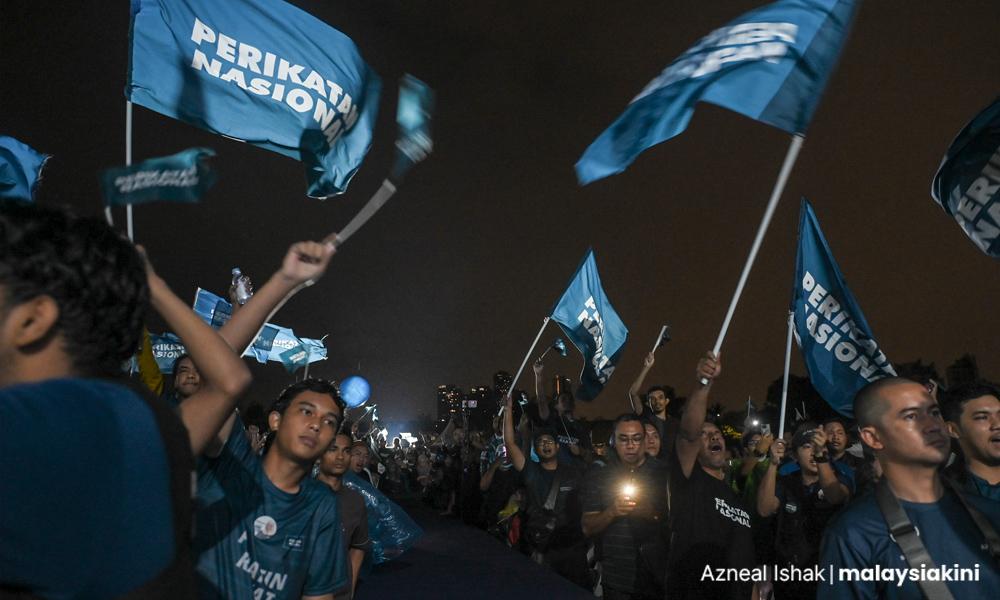Mahkota is the 12th by-election since GE15. If we have just one more by-election after this, the current Parliament would have more by-elections than the entirety of the previous Parliament (2018-2022), which had a total of 12 by-elections.
According to the Election Commission’s estimate, the Mahkota by-election costs RM 2.4 million. Simplistically, if we were to multiply that cost by 15 (nine state constituency by-elections and three federal constituency by-elections, which should cost at least triple), the country has spent RM36 million on by-elections in 22 months from November 2022 to September 2024, or an average of RM1.64 million a month.
Are by-elections important, or are they a waste of money?
If you listen to the incessant talking heads, you will hear a spectrum of answers ranging from “totally not important, and we should abolish by-elections” to “super important, and the government can live or die based on the outcome.”
Each by-election’s result generates waves of punditry drawing various conclusions. To certain Umno factions, Mahkota’s result “proves” that the party is strong on its own and does not need Pakatan Harapan.
To supporters of the federal coalition government, this is ‘proof’ that the Harapan-BN formula is working.

Of course, if the election result were terbalik (flipped around), the opposition would have said this was a “referendum” in which the people have rejected the government of the day.
How much can we interpret from a by-election, really? The answer is… it depends on what you are asking.
Important to whom and how
It is important for voters to be able to exercise their basic right to elect their representative, so a by-election is usually necessary under the first-past-the-post electoral system whenever a seat becomes vacant.
By-elections are sometimes interpreted as barometers of public sentiment and indicators of broader political trends. However, not all by-elections carry the same weight, and their outcomes may not always reflect larger national dynamics.
Some by-elections serve as turning points in political realignments (like Tanjung Piai in February 2020, which brought down an entire government and fragmented the coalition that ended BN’s six-decade rule), while others are more localised contests with little impact beyond the immediate constituency (anyone remembers Sungai Besar 2015, Merlimau 2011, or Machap 2007?).
When I say less important, this is not to diminish by-elections. Indeed, there should be a study on how a by-election impacts the local economy with an influx of campaigners booking all the homestays and filling up all the restaurants and warungs. By-elections are almost like promoting domestic tourism.
This is not to mention the goodies being dished out to voters - an offence that electoral watchdog Bersih repeatedly highlight to no avail as the Election Commission lacks the enforcement power necessary to clamp down on election violations.

A by-election may inconvenience some voters, but the constituency usually benefits from it as a whole. Disproportionate resources are poured into the constituency, roads get fixed, ATM got installed (in Nenggiri), and development projects which normally take years to be decided could be announced in an instant.
The wildest of such by-election promises that I recall is that during the 2014 Teluk Intan by-election, Najib announced that if the BN candidate (then Gerakan president Mah Siew Keong) wins, the government will build a new university in town with RM120 million allocation.
This inducement is an electoral offence, but think about the boost to the local economy: job generation! Higher education hub!
Out of curiosity, I checked what happened to this outrageous by-election pledge, and this is what the UPSI Teluk Intan “campus” looks like now: an abandoned project in need of resuscitation.
Well, that is what happens when you announce that you are building a university to win a by-election before conducting feasibility studies.
Seven questions to gauge by-election importance
Are by-elections important? The answer is not a binary choice (yes or no) but a plural set of qualitative answers to more specific questions on how it is important or not important.
These are the questions to consider when you hear about whether a next by-election is important and how:
a) Is it a safe seat or a swing seat?
The significance of the outcome is in this increasing order: If it is a safe seat for party A, it is not that newsworthy if party A wins. If it is a swing seat and party B flips the seat from party A, that’s a notch higher.
If a safe seat is flipped, that’s someone in panic mode.
In this order, Nenggiri is a bigger upset (scenario 2) than Mahkota (scenario 1), but Nenggiri is not scenario 3 because, in its 20 years of existence, the constituency has been all the way BN with only one year of aberration (2023-2024) that Perikatan Nasional managed to win it, with a small majority.

Viewed in this context, both by-elections were positive news to the government but not the earth-shattering affirmations that they were made out to be.
b) Is the winner from an incumbent government?
BN and Harapan are the incumbent governments at both federal and state levels in Mahkota, as well as Kuala Kubu Baharu, by-elections.
Voters are generally inclined to favour the incumbent government during by-elections because they receive disproportionate attention and resources, and voting for the opposition in a by-election carries a heightened risk of being discriminated against after the fact.
If it’s a general election, the risk for voting opposition is distributed more evenly [it’s like protesting: if you do it alone, you are scared of being crushed. If a group does it collectively, there’s safety in numbers] and may pay off [the opposition could win power].

This is the political version of “Dog bites man, not news. Man bites dog, news.”
So, if an incumbent government candidate wins a by-election, that’s expected. If an incumbent federal government candidate contests against an incumbent state government candidate, it’s a toss-up. If a candidate who belongs to the incumbent governments at both levels still loses, that’s “man bites dog” news.
c) Would the outcome meaningfully influence the majority necessary to form the government?
Sungai Bakap wasn’t going to change the Penang state government with a sizable Harapan majority and remote risk of coalition disintegration.
But if a by-election were to occur in the Johor state assembly during former menteri besar Mohamad Hasni’s one-seat majority (2020-2022), that would have become a de facto referendum on the state government.
d) Does it change a political party and its trajectory?
One of the stories I like to tell is how the 2014 Teluk Intan by-election was a major “What if?” in Malaysian history.
What if Dyana Sofya Mohd Daud, a UiTM young Malay female graduate fielded by DAP, were to beat the veteran, male, and president of a Chinese-majority party in a Chinese-majority seat?
It would have validated Lim Kit Siang’s decision to field Dyana and perhaps opened the door wide open towards a more multiethnic DAP, eg, more Malays would want to join DAP, and DAP would field more Malay candidates because they are equally winnable.

But that did not happen, and Lim’s critics got to say, “I told you so. If you fielded Superman Hew, we would have won comfortably.”
The party tarik brek on, or at least did not significantly expand, its Malay recruitment and candidacy. The next time DAP contested Teluk Intan in 2018, they fielded Nga Kor Ming. What can be more Chinese than that?
e) If the by-election is engineered (not caused by the natural death of an elected representative), does it achieve its intended purpose, or did it makan diri?
Kajang Move not only failed its stated objective to elevate Anwar into the position of Selangor menteri besar, but it set off a series of events leading him to drink teh o kosong at Sungai Buloh Prison.
f) What claims are being made, does it match the evidence, and what is the basis for comparison?
The big BN victory in Mahkota is not as stunning when contextualised against the 2022 Johor state election.
The vote share obtained by the PN candidate in the 2024 by-election (20.8 percent) is similar to what they obtained in the 2022 state election (21.3 percent).
In the 2022 general election, PN received a much larger share (30.5 percent) in a broader national Malay swing towards PN - that was the aberration.

In a nutshell, we don’t know if there has been a major swing (switching from PN to BN-Harapan) unless a more detailed study on voter behaviour is done.
It is entirely possible that no such conversion happened, and what took place is essentially (i) PN didn’t excite those who voted for them the first time in GE2022 to come out and vote again. They stayed home, which is not the same thing as voting for BN-Harapan; (ii) PAS was passively boycotting or foot-dragging and didn’t do its share to mobilise votes for the Bersatu-PN candidate.
Any claim that is strongly made beyond these two points are not supported by evidence - hypotheses are welcome but should not be passed off as established facts.
(g) How much is the difference between the decline in voter turnout and the margin of victory?
It is normal for by-elections to have a lower turnout than general and state elections.
But say, for example, if the voter turnout is 20 percent lower than the previous general or state election, that’s 20 percent undecided voters who opted to sit out in a low-stake by-election.

For context, a 10 percent margin of error is deemed a big uncertainty in professional surveys. Therefore, the lower the voter turnout, the less certain we can extrapolate about the outcome.
This is especially true if the margin of victory is slim and the undecided 20 percent could easily flip the seat if and when they show up in the next general or state election.
Few by-elections matter
Armed with these “toolkits” of questions, hopefully the reader can separate the wheat from chaff in interpreting by-elections and their outcomes.
Few by-elections are referendums on the government (affirming or negative); if not, the government and its policies would be so flippant and reactionary every time a by-election happens.
Let’s conclude this week’s column by running the clock back to a bygone era: the Ijok by-election of 2007.
The late Khalid Ibrahim was PKR’s candidate, who happened to be a household name famous for leading the “dawn raid” on the London Stock Exchange. All that fanfare but he lost to MIC.

Less than a year later, in the 2008 general election, Khalid not only won Ijok but also took control of Selangor as the new MB, signalling a major shift in voter sentiment that had not been allowed to manifest during a by-election.
Ijok is a fascinating example of how a by-election outcome may not always reflect broader political shifts or predict future electoral success.
I feel like we project so much into by-elections because we don’t have a proper referendum or local election. But that’s a topic for another column. - Mkini
OOI KOK HIN is a political sociologist who dabbles in civil society.
The views expressed here are those of the author/contributor and do not necessarily represent the views of MMKtT.




No comments:
Post a Comment
Note: Only a member of this blog may post a comment.